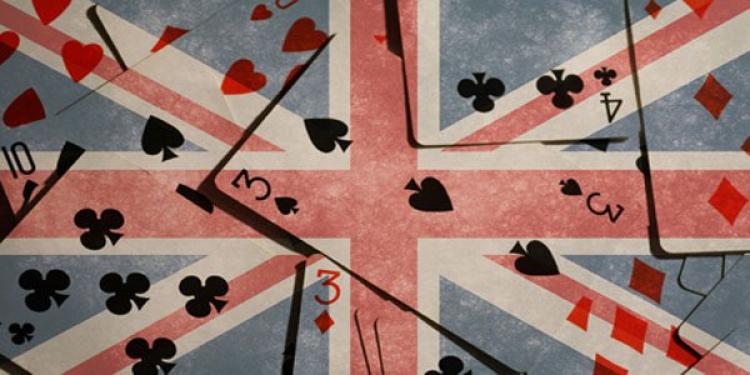Winners and Losers: An Overview of the New UK Gambling Bill and Budget
Posted: April 2, 2014
Updated: October 4, 2017

March marked big changes for gambling in Britain; both the new gambling bill and the budget have major implications for the future of the industry.
The Labour government under Gordon Brown passed sweeping gambling legislation in 2005 which greatly liberalized the industry. Large casinos and fixed-odds betting terminals (FOBTs) were legalized for the first time. The move was hailed at the time as a pro-business measure to boost employment and tax revenue in the EU’s third-largest economy. But inevitably the bill resulted in unintended consequences and the anti-gambling lobby pushed back against the alleged social ills stemming from the 2005 bill.
The current Conservative government under David Cameron and Chancellor of the Exchequer George Osborne has made of point of reforming British gambling laws yet again. Last month Parliament passed the UK Gambling (Licensing and Advertising) Bill, which includes major revisions of the 2005 legislature. In addition the latest budget has major implications for the gambling industry.
Who gets helped
The new budget announced last month contains several stipulations which are popular with mainstream voters. The first is that the bill cuts the bingo duty rate in half to ten percent. This provides much needed relief to an old industry that once enjoyed massive popularity but has been hit hard by the rise of online casinos in the UK. Many of these sites offer bingo games with larger payouts than those found in halls. Bingo is usually referred to as a “soft form of gambling” and pro-business measures like tax cuts do not spark outrage from anti-gambling groups.
A spokesman from the Rank Group, which owns 97 bingo halls, predicted that it will save the industry GBP 40 million annually, allowing firms to keep employees on staff and in some cases open new locations. Rank Group expects to create 200 new jobs, while Gala Bingo will scrap plans to close nine failing halls, preventing 200 layoffs and allowing them to open a new hall in Southampton.
Hewing to the pro-business line, Osborne had this to say: “Bingo clubs up and down the country support many jobs. By cutting in half the tax that they pay, we are backing an industry that is so much more than the sum of its parts.” The move should also score points for the Conservatives with elderly voters.
According to anti-gambling groups, the budget will also help FOBT addicts. It includes raising the tax on FOBTs, pejoratively called “the crack cocaine of gambling” from 20 percent to 25 percent. Many betting shops are dependent on revenue from these machines. Cutting into their profitability will not directly restrict the prevalence of these machines, but it may well force many shops to close. This will reduce access to these machines, and anti-gambling groups hope, addictive betting behavior.
Who gets hurt
As just mentioned, the tax hike on FOBTs will hurt bookmakers. The Guardian reported that land-based betting shops received 67 percent of their total take from FOBTs in 2013. This will hurt family-owned shops and Labrokes (which operates 2,400 shops in the UK and Ireland) more than firms like William Hill, Bet365 and BetVictor, who have moved more of their operations online.
• Last month British Parliament passed both a new gambling bill and a budget, both of which have major implications for the gambling industry
• The tax rate on bingo revenue will be halved, saving bingo halls across the country from closure; the rate on FOBTs will be raised, potentially causing countless betting shops to close
• Foreign-licensed online gambling and betting sites will have to obtain licenses in the UK and pay a 15 percent tax on revenue from British punters
The Association of British Bookmakers complained that the tax will cost the industry GBP 79 billion annually and will force countless independent bookies to close, resulting in major job losses in an industry that employs 40,000 people.
The bill also scraps the “white list” of international bookmakers which were allowed privileged access to the UK market. This meant that bookies licensed in Gibraltar, Malta, the Isle of Man and several other locations were free to serve British bettors. Now they will have to obtain licensing within the UK itself. In addition, they will be subject to a 15 percent point-of-consumption tax. This means that they will pay 15 percent on any revenues earned by serving UK customers, the same tax that online casinos and online sportsbooks in the UK pay.
This is bad news for Victor Chandler, who moved his BetVictor company to Gibraltar in 2001 specifically to escape Britain’s onerous licensing requirements and taxes. Given how unpopular offshore operators are with the general public, the Conservatives shouldn’t have to take a political hit for this move. It may help shore up the budget deficit as well.
Summary
The new budget has clear winners and losers. Land-based bingo halls will benefit from a significant tax cut while sportsbooks will be hurt by the tax hike on FOBTs, which now accounts for the majority of betting shop revenue. The 2014 gambling bill focuses primarily on bringing offshore gambling sites under Britain’s regulatory umbrella. Operators like Victor Chandler will no longer benefit from basing their operations in tax havens like Gibraltar and the Isle of Man.












